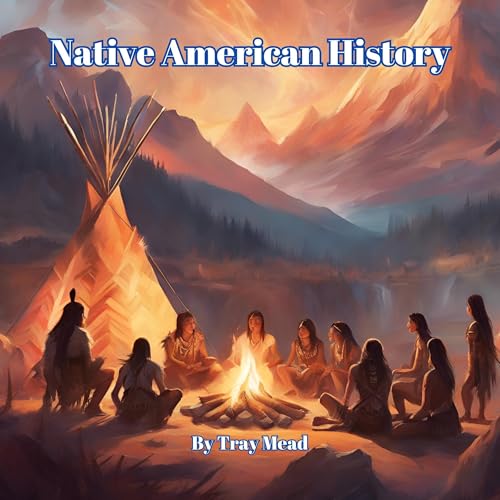
Native American History
カートのアイテムが多すぎます
カートに追加できませんでした。
ウィッシュリストに追加できませんでした。
ほしい物リストの削除に失敗しました。
ポッドキャストのフォローに失敗しました
ポッドキャストのフォロー解除に失敗しました
聴き放題対象外タイトルです。Audibleプレミアムプラン登録で、非会員価格の30%OFFで購入できます。
¥1,900 で購入
-
ナレーター:
-
Martin G. Jewell
-
著者:
-
Tray Mead
概要
Delve into the profound and multifaceted history of the Native American peoples with Native American History, a meticulously researched book that offers an in-depth exploration of the diverse cultures, societies, and experiences of Indigenous tribes across North America. This book is an essential resource for anyone interested in understanding the true history of the continent, free from the distortions and omissions often found in mainstream narratives.
Covering thousands of years of history, Native American History traces the origins of Indigenous peoples, their ancient civilizations, and their complex societies that thrived long before European contact. The book provides a comprehensive overview of the various Native American tribes, from the powerful Iroquois Confederacy in the Northeast to the Pueblo builders of the Southwest and the Plains tribes that followed the great buffalo herds.
Through a careful examination of archaeological evidence, oral traditions, and historical records, the book paints a vivid picture of the social, cultural, and spiritual lives of Native Americans. Listeners will discover the sophisticated systems of government, trade networks, and environmental stewardship that characterized these societies, as well as their contributions to agriculture, medicine, and the arts.
Native American History also addresses the devastating impact of European colonization, including the forced removal of tribes from their ancestral lands, the brutal wars of resistance, and the tragic consequences of treaties and policies that sought to erase Native American cultures. The book does not shy away from the difficult chapters of history, providing an honest account of the suffering and resilience of Indigenous peoples in the face of genocide, displacement, and cultural suppression. Yet, the narrative is not solely one of loss and struggle.
©2024 Tray Mead (P)2025 Tray Mead

